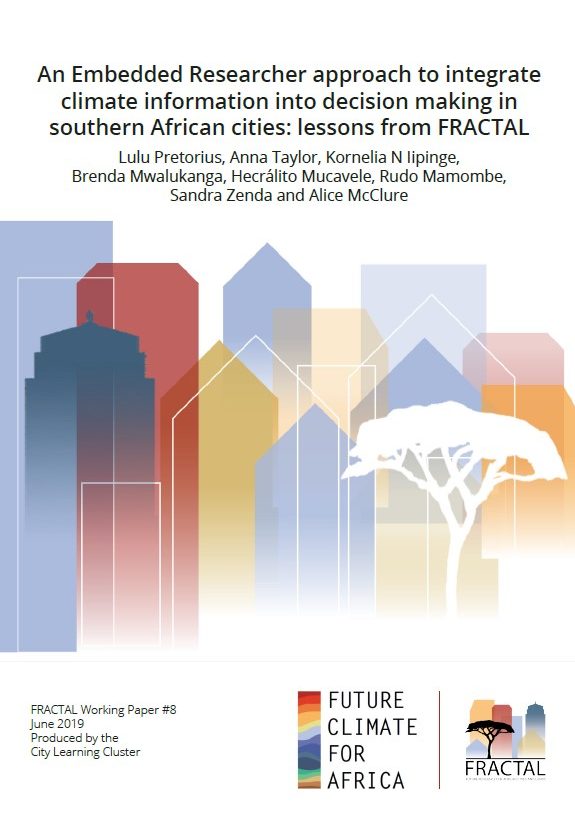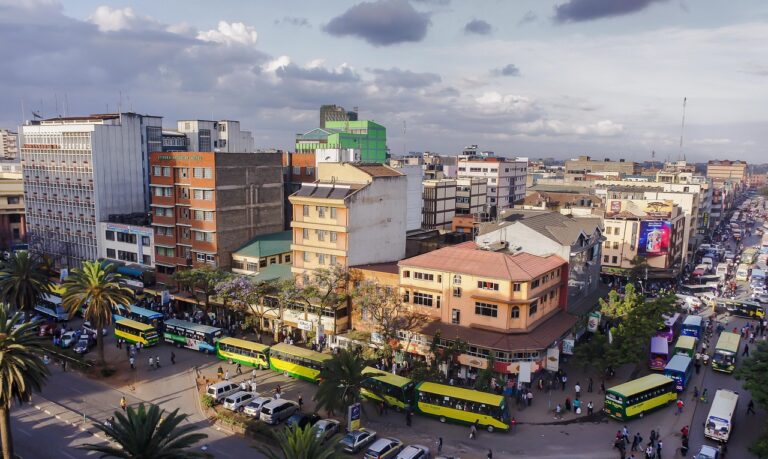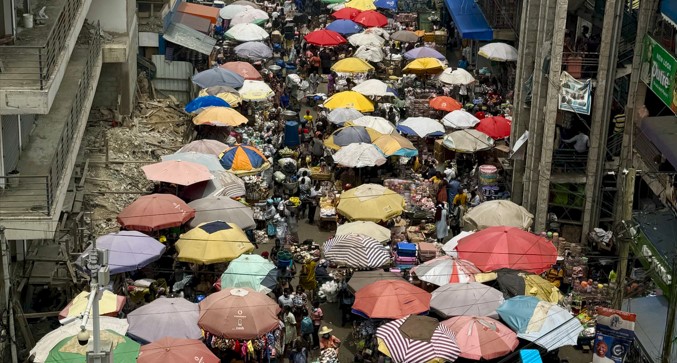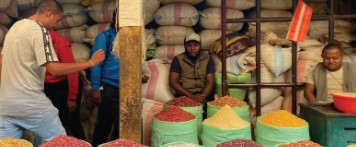An Embedded Researcher approach to integrate climate information into decision making in southern African cities




Download:
Related ICLEI Pathway(s)
About
Resource summary
There is often a disconnection or gap between scientific knowledge and the implementation of actions aimed at addressing related problems. This gap is especially evident in fields with complex interactions between a multitude of factors and actors, such as sustainability challenges, biodiversity conservation, environmental management and addressing climate change. Transdisciplinary approaches are increasingly being proposed and attempted to bridge the gap(s) between science and action. Transdisciplinarity not only bridges and integrates across disciplines and professions, but through this approach science becomes a more inclusive social process of resolving problems through the participation and mutual learning of stakeholders in the government, business and civil society sectors. Making science, or the structured pursuit of improved knowledge, more inclusive is important because the knowledge sought (and the resources invested in it) is more reflective of priorities widely-held in society and the products of research are more widely understood and thereby more readily able to be acted upon.
Building the climate resilience of African cities fits squarely within the category of complex problems that may benefit from taking a transdisciplinary approach to co-producing actionable knowledge between multiple actors and disciplines. Yet one of the key challenges in implementing a transdisciplinary approach is building enough trust, familiarity and understanding across various boundaries to engage in meaningful co-production. The Future Resilience for African Cities and Lands (FRACTAL) project1 employed several strategies to address this challenge, one of which is the establishment of embedded researchers (ERs). This FRACTAL Working Paper presents: the rationale for undertaking embedded research; the aims of embedded research within FRACTAL; the ways in which embedded research is being implemented in each of the city contexts; and the lessons learned to-date from implementing the approach in five cities, focussing on the benefits; and the challenges of the approach. It is written for those in academia, government agencies, NGOs and companies who are interested in potentially conducting embedded research themselves, or in recruiting an embedded researcher (ER) to work with them in their organization and/or in a partner organization (e.g. academic supervisors and managers in the host organizations). It is also written for the colleagues of ERs, particularly our own colleagues in the university and the city government, who wonder and ask us what we are doing, because it is a role that is unusual and unfamiliar to them. In addition, this Working Paper is written for project designers and funders who are interested in incorporating the embedded research approach into projects and for those in other projects already using a version of embedded research, as a basis for comparison and mutual learning.
Related resources

TRACKING TRANSFORMATION: How African Cities Are Driving Global Climate Action Through Local Data

Resilient Municipal Market Fund (ReMark) Instrument Analysis


